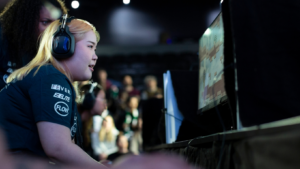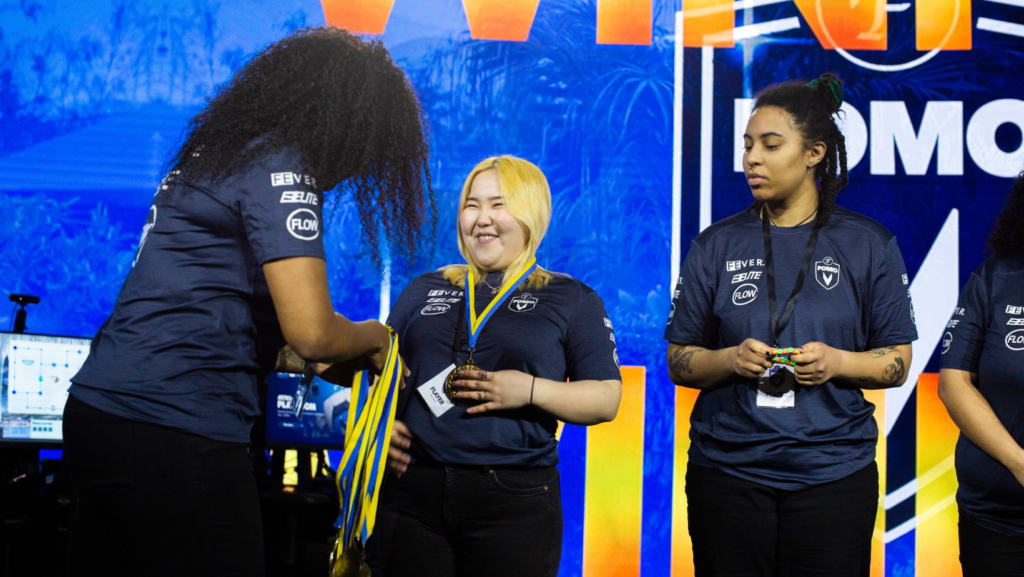In the thrilling world of esports, Rocket League stands out with its unique blend of high-speed racing and soccer strategies. This fast-paced, adrenaline-inducing game has garnered a massive following, making its esports events a must-watch for gaming enthusiasts worldwide.
Staying updated with the Rocket League esports schedule isn’t just about marking dates on a calendar. It’s about being part of a global community, sharing the anticipation, and experiencing the excitement of each match. This article aims to keep you in the loop, ensuring you don’t miss a single high-octane moment.
Rocket League Esports Schedule
 Seamlessly transitioning from the thrilling components that construct Rocket League esports schedule into the esports demographic, the understanding of the schedule becomes paramount for avid spectators. The esports environment breathes life to the routine, offering a unique blend of thrill and strategic gameplay.
Seamlessly transitioning from the thrilling components that construct Rocket League esports schedule into the esports demographic, the understanding of the schedule becomes paramount for avid spectators. The esports environment breathes life to the routine, offering a unique blend of thrill and strategic gameplay.
Rocket League Esports is a digital arena where gamers converge to compete on a global platform, showcasing their precision and strategy in the game Rocket League. Operating under the umbrella of The ESL, a premier esports organisation, Rocket League tournaments bring together teams from around the world. For instance, teams like Cloud9, NRG Esports, and Renault Vitality have all staked their claim in this competitive sphere.
Analyzing Recent Rocket League Esports Schedule
Diving deeper into the competition’s structure, let’s dissect the recent Rocket League esports schedules. This section presents an analysis of the 2021 schedule and a comparison with the preceding 2020 schedule.
The 2021 Rocket League esports schedule may seem daunting at a first glance due to its meticulous planning and many events. Esports competitions for 2021 kicked off in March, following a similar pattern as previous seasons, with regular circuit events and regional championships.
Europa, North America, and Oceania, the prime regions for participation, again, hosted multiple regional events, pitting top teams against one another in fierce battles. Besides, this year, Psyonix featured three splits, namely, Fall Split, Winter Split, and Spring Split. Each split hosted multiple regional events and a major tournament, with each region’s top teams vying for significant prize pools.
How to Follow the Rocket League Esports Schedule
 Gaining insights into the constantly evolving realm of Rocket League esports calls for comprehensive tracking of its action-packed schedule. Following the calendar does not pose a challenge, given the existence of numerous resources.
Gaining insights into the constantly evolving realm of Rocket League esports calls for comprehensive tracking of its action-packed schedule. Following the calendar does not pose a challenge, given the existence of numerous resources.
Several websites present you with the esports schedule in an organized and user-friendly manner. Rocket League’s official website, authored by Psyonix, stands as a primary source of precise and up-to-date information related to the esports schedule. It encompasses in-depth details about ongoing regional events, upcoming major splits, qualifiers, and most significantly, the World Championship.
Another authoritative online platform is the Electronic Sports League (ESL)’s website. This contains relevant news articles, updates, and specifics about teams like Cloud9 and NRG Esports. For those who desire a comprehensive overview, websites like Liquipedia and GosuGamers offer diverse data. They encompass team profiles, match results, standings and, evidently, the esports schedule. Rocketeers.gg also maintains a dedicated page to display the Rocket League esports calendar.
Predictions for Future Rocket League Esports Schedules
 Rocket League Esports hinges on precision as much as future planning. The eSports competitive scene’s dynamics are constantly shifting based on new trends and recent developments.
Rocket League Esports hinges on precision as much as future planning. The eSports competitive scene’s dynamics are constantly shifting based on new trends and recent developments.
Recent trends suggest a strong cycle of enhancements in Rocket League eSports’ scheduling. A noticeable trend is the expansion of regional tournaments, benefiting teams across various parts of the world. Increasing regional concentration, for instance, in areas like Asia, known to be a hotbed for eSports talent, considerably escalates the number of local teams participating. This expansion, informed by authoritative sources like Psyonix’s data, can necessitate a reconfiguration of schedules to fit in more games and accommodate wider time-zone variations in the future.
Data-centric approaches have also begun to shape Rocket League eSports schedules. eSports teams increasingly use game statistics and AI analytical tools to gain performance insights. This data utilization can potentially lead to a scheduling shift to ensure optimum performance times for players.

